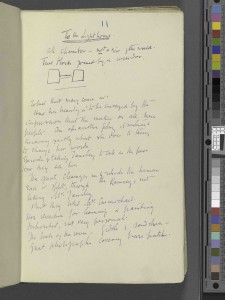Technology for Writers

Recently my tablet keyboard abruptly stopped working. Okay, I thought it was abrupt until I remembere the almond milk incident. I immediatley ordered another keyboard which, when it arrived, worked for a third of a sentence and froze. I had a mini breakdown, during which I alienated the family, including the dog, by not shutting up about how technology had failed me.
One piece of technology. The rest - laptop, kindle, smart phone and even my camera, were all still functioning. (Although, I should say right here that my laptop is only a laptop if you're a sumo wrestler. It's allowed on holidays but other than that remains tethered to my desk.) I read all the forum posts on frozen transformer tablet keyboards. I rang people. I performed a soft reset. I performed a hard reset and returned my tablet to the original factory settings. The new keyboard stubbornly remained an expensive tablet holder.
The problem was research. I type faster than I write and I'm a touch-typist. My idea had been to use the transformer tablet to take notes and the bibliographical details of books I'd consulted for a new project. Then I thought of how my daughter records information on her smart phone camera. As she works in hospitality her notes include beer and wine labels, menu details, innovative or interesting bar layouts and smart glassware.
I could, I realised, simply photograph my bibliographical details. Icould use an old-fashioned photocopier, manila folders, some labels and a filing system for gathering and storing large chunks of information. I began to get a grip. My smart phone also includes an audio notetaker. Why have I never used this? It might be odd, if not downright disturbing to my colleagues, to speak into this in a library - but here was a technological tool I'd simply ignored.
I love paper notebooks and routinely keep one for each writing project I begin. I have a personal journal and a scrapbook for knitting and sewing information. I love reading other people's notebooks, seeing their handwriting ont he page and the odd things that turn up between journal pages; sketches, ticket stubs, postcards and photos. I stick these in my journals, too. Why had all I divorced all this from research? Was it some hangover from my university days? Hand-in-hand with these thoughts, I decided I needed to annotate some of my other reading. I am often caught by a piece of writing, or want to follow up a point an author makes but I have had a definite hangup about writing in a book - and that is a result from growing up in a secondhand bookshop. While I would never use a highlighter in a book, I have recently bought a thick, soft mechanical pencil and some large sticky notes. I began to conjure a beautifully covered notebook in my mind. No ruled lines, perhaps a leather cover? A notebook with squishy cream paper - and a new fountain pen? I thought of improving my handwriting, taking time and care to form the loops and how I could illustrate this research notebook with photocopied images.
Of course, in the meantime the transformer keyboard resolved its issues and began to merrily type full sentences. My new dilemma? The handtooled leather notebook or the quick-clunking keys? The dog still hasn't put in her vote.
How about you? What research tools do you favour? Are you an avid journal keeper? Do you keep notes on scraps of paper?
Blog Tags
Contact Us
Tyle&Bateson Publishing
Leonie Tyle
M 0419 333 449
E leonie@tylebateson.com.au
Catherine Bateson
E catherine@tylebateson.com.au
Great post Leonie,
I keep all my research scribbles in a A4 spiral bound note book, one for each manuscript. Love picking up this working document as I open my computer files ... and commence tweaking my story... Karen Tyrrell